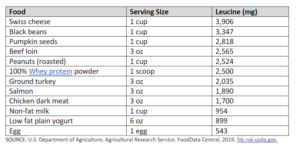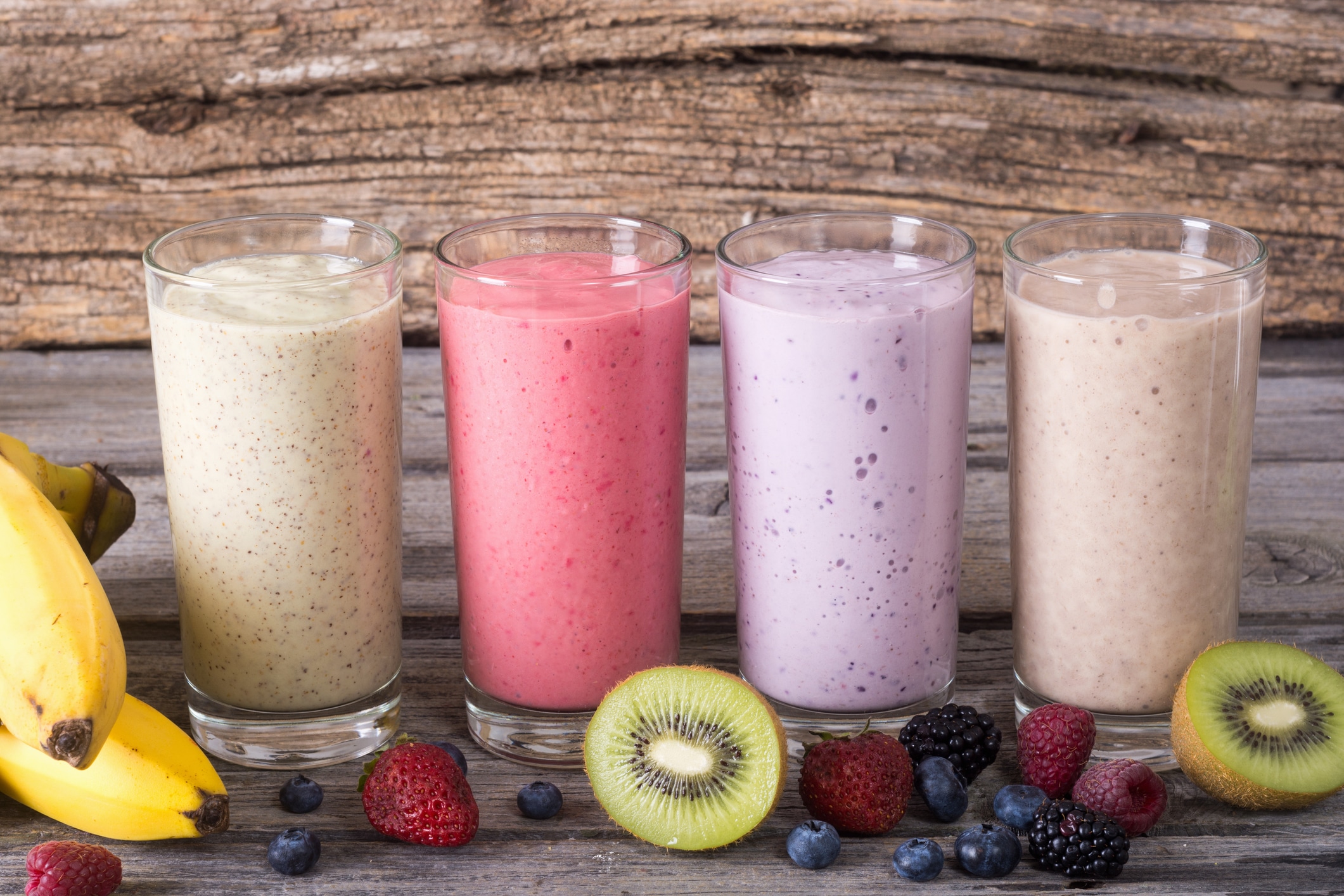All of the proteins in our bodies are made from twenty different amino acids strung together in various orders and lengths. For this reason, amino acids are referred to as the building blocks of proteins. Some amino acids can be made by our body. They are referred to as non-essential amino acids. Others we can only get by consuming them, either through food or by taking a dietary supplement. These are referred to as essential amino acids. Branched-chain amino acids (BCAAs) are a group of 3 essential amino acids: leucine, isoleucine, and valine. Of the three BCAAs, leucine gets the most attention in the sports nutrition world due to the role it plays in building muscle.
Why is Leucine Important?
When it comes to energy for training and sports performance, carbohydrate is the nutrient we think of first. That’s because it’s the preferred fuel source for working muscles. While some protein can be converted and used for energy, its use in working muscles is limited. Most protein is used for building and repairing body tissues. The amino acid leucine, however, is different. Compared to other amino acids, leucine is readily converted to energy during exercise.
In addition to being an energy source, leucine also plays a key role in building new muscle tissue. It is needed to signal the process of building new muscle. In fact, leucine is the most powerful activator of muscle growth out of all other amino acids. For this reason, many athletes have turned to leucine-rich foods and supplements to help improve muscle strength and lean body mass.
What Foods Contain Leucine?
Leucine is sold as a dietary supplement and is also found naturally in some foods. The impact of both has been widely researched. Though taking a supplement might sound like the best way to increase your intake, research suggests otherwise. Recent research does not show any greater benefit of consuming leucine supplements alone versus consuming foods that are high in leucine content.
In fact, consuming whole foods sources rich in leucine has been shown to be superior to taking leucine supplements alone. That’s because the supplements lack the other essential amino acids and important nutrients the body needs to build and repair muscle.
What Foods Contain Leucine?
Not all protein-rich foods are created equal. Some foods contain more leucine than others. Additionally, some protein-rich foods are more easily digested than others. Meaning, it takes less work to break them down into individual amino acids that can be used by the body. The good news is that most foods that are high in leucine also are easy to digest. Lean meats and dairy products are some of the best and most consumed sources of leucine in the diet. The chart below lists leucine-rich foods and the amount of leucine each provides per serving.
How Much Leucine Do You Need?
There is no set daily value for leucine intake, but recommended intake levels range from 39-45milligrams per kilogram of bodyweight. That means a 160-pound (73 kilogram) athlete should aim to get between 2,800-3,300 mg of leucine per day.
How to Get Adequate Leucine Each Day
A balanced diet that includes adequate protein should be sufficient to provide enough leucine for health and muscle building. The key is to consume a variety of high-quality protein sources throughout the day. By simply drinking a cup of milk with meals, you can meet or get close to meeting the daily recommended intake of leucine. For athletes, consuming a pre or post exercise snack that contains both leucine-rich proteins and carbohydrates helps provide the energy and amino acids needed to maximize muscle growth and repair.





